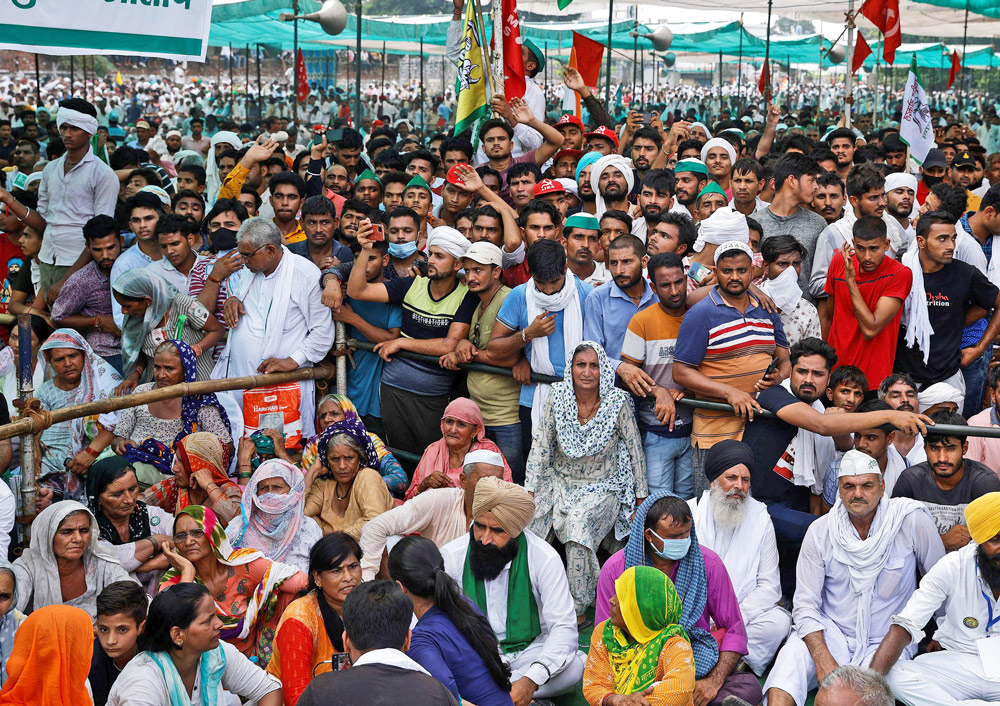More than half a million Indian farmers rallied Sept. 5 in Muzaffarnagar in the state of Uttar Pradesh, above, calling for Indian Prime Minister Narendra Modi’s government to repeal three agricultural laws that will open them up to deeper exploitation by large corporations and threaten to destroy their livelihoods.
For almost nine months, large numbers of farmers and their supporters have been fighting these laws. Tens of thousands rotate from their villages to attend protest encampments on the main highways into the capital, New Delhi.
Some demonstrators in Muzaffarnagar chanted “Farmer-laborer unity!” Farm leaders are urging unionists to join a one-day nationwide strike against the laws Sept. 27.
The Supreme Court ordered the indefinite suspension of the laws in January, but that hasn’t stopped farmers and their supporters continuing to fight for their repeal.
The new laws would dismantle protections working farmers have had for decades through a government-guaranteed minimum price for some staple grains. Modi’s directives would allow corporations to buy farm produce at much lower prices, which will drive many working farmers deeper into debt or off their land altogether.
Under the old scheme a government agency buys rice and wheat from farmers and sells it at subsidized prices to 67% of the country’s 1.38 billion people. But millions who have lost their jobs during repeated pandemic shutdowns are excluded from the food subsidies, because they’re not included in the long outdated 2011 census. And millions of migrant workers aren’t eligible for a ration card.


